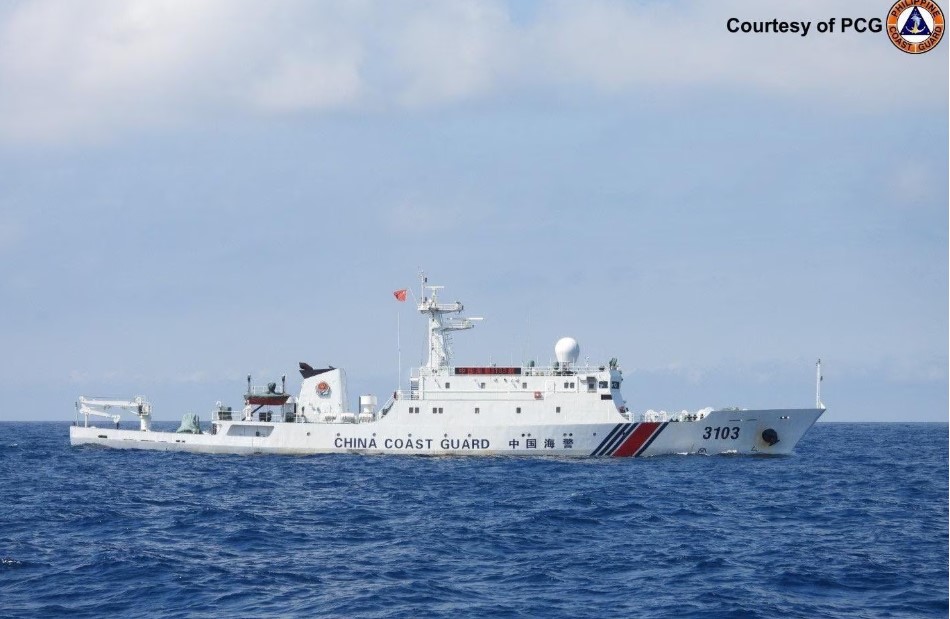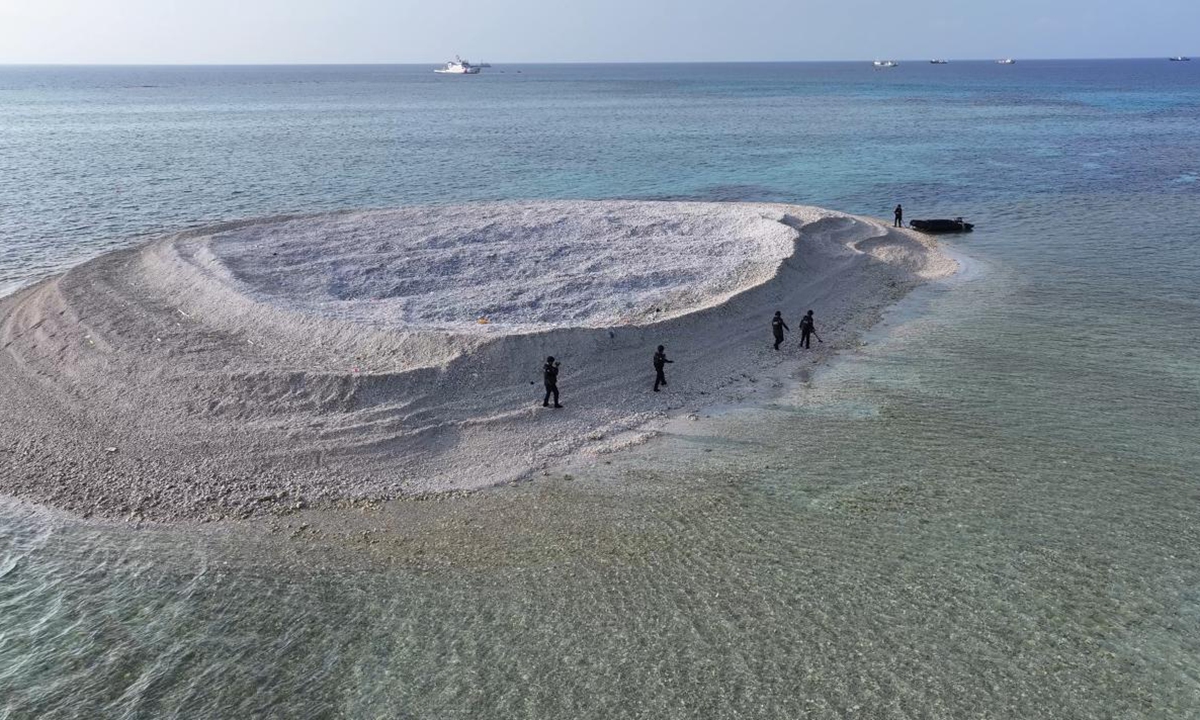search the site
Exclusive: China Coast Guard enforces sovereignty, cleans up waste at Tiexian Jiao in South China Sea

By Hu Yuwei and Fan Wei
The Global Times recently obtained an exclusive set of photographs, showing that in mid-April, the China Coast Guard (CCG) enforced maritime management and exercised sovereign jurisdiction at Tiexian Jiao in the South China Sea by conducting on-reef inspection and evidence collection of illegal activity.
The Global Times learned from a source close to the matter that a group of CCG officers landed on Tiexian Jiao to conduct on-reef inspection and video-recording of illegal activity. Meanwhile, the CCG officers also displayed the Chinese national flag to assert sovereignty, cleaned up plastic bottles, wooden sticks, and other debris scattered across the reef flat.
Chen Xiangmiao, director of the World Navy Research Center at the National Institute for South China Sea Studies, told the Global Times that this demonstrates the CCG’s effective control, regular patrols over inherent territory, and responsible approach to marine environmental protection in accordance with laws and regulations.
On January 25, Liu Dejun, CCG spokesperson, said that on January 24, Philippine vessels BRP 3003 and BRP 3004 intruded into the waters near Tiexian Jiao in China’s Nansha Qundao without Chinese government approval, attempting an illegal landing and sand sample collection. CCG ships lawfully intercepted, warned, and repelled the Philippine vessels.
“China has indisputable sovereignty over the Nansha Qundao, including Tiexian Jiao, and their adjacent waters,” Liu said. “The CCG will continue to carry out law enforcement activities in China’s jurisdictional waters to resolutely safeguard national territorial sovereignty and maritime rights and interests.”
Since 2024, the Philippines has repeatedly attempted to dispatch vessels to waters near China’s sovereign islands and reefs in the South China Sea “to monitor supposed artificial island creation activities.”
In May 2024, Philippine Coast Guard spokesperson Jay Tarriela told a forum that the Philippine Coast Guard will take marine scientists to some areas in South China Sea to determine whether the coral piles were a natural occurrence or caused by human intervention, Reuters reported.
This year, the Department of Environment and Natural Resources (DENR) announced plans to establish additional marine scientific research stations on islands in the South China Sea. As reported by The Philippine Star in March, the Philippine Navy has claimed to escort DENR personnel under the pretext of “marine biodiversity protection” during such activities.
“The Philippines’ so-called marine protection is a charade – using environmental issues as a cover for illegal territorial encroachment, justifying its increasingly isolated unilateral actions, and smearing China,” Chen told Global Times.
“The photos clearly show that coral, sand, and debris are naturally distributed by ocean currents, consistent with marine dynamics – not man-made.”
Chen noted that “marine environmental protection has always been part of the CCG’s lawful duties. China’s strict management and punishment of environmental damage, as well as its practice of cleaning up naturally drifted debris, demonstrate its responsible approach to South China Sea environmental stewardship. It is absurd for the Philippines to portray China – a genuine environmental protector – as a ‘destroyer.'”
The expert noted that the Philippines fabricates various excuses for its intrusion into South China Sea islands and reefs. Such behavior completely exposes its speculative mentality of being willing to act as a “pawn” for forces outside the region, trapping itself in a passive dilemma. Facing domestic public backlash over livelihood issues and China’s strong countermeasures in firmly safeguarding its sovereignty, the Philippines has proven unable to effectively address these challenges.

Photo: China Coast Guard officers enforce maritime management and exercise sovereign jurisdiction at Tiexian Jiao in the South China Sea by conducting on-reef inspection and evidence collection of illegal activity.
source : globaltimes


















